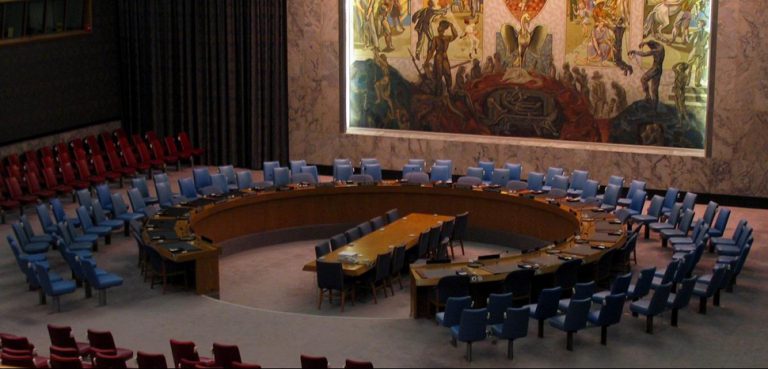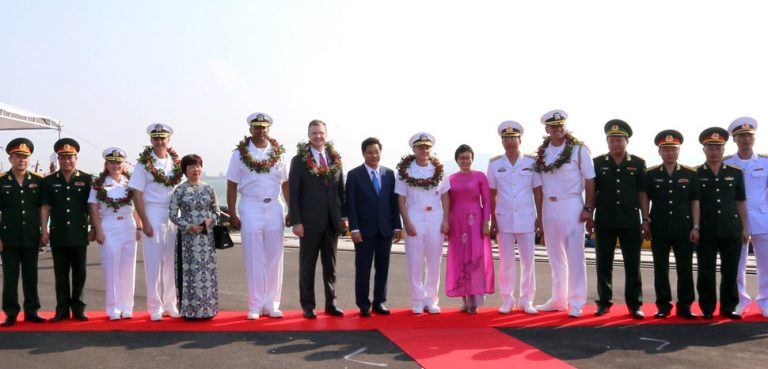Indonesia has imposed a new regulation, called the Omnibus Bill or Job Creation Bill (Indonesia: Undang-Undang Cipta Kerja), to boost investment, especially foreign direct investment, and enlarge the employment opportunities, though at the expense of the interests of workers and the environment. The Omnibus Bill has been met with resistance from trade unions, civil society and intellectuals since it was first proposed by Joko Widodo at his second term inauguration. But the government and national legislative body chose to remain silent, and have slowly advanced the bill’s formulation and enforcement.
The Omnibus Bill is a clear example of how the Indonesia government today is struggling to secure all aspects of the policymaking process, such that it can succeed in imposing and forcing policies that are contrary to the real interests of the community. This is exactly what happened in Hong Kong, when all aspects of the policy-making process were secured by Beijing so that demonstrations of any size or kind would inevitably hit a great wall. As a result, the “two-state solution,” which should have ended in 2047, was actually wrapped up easily in 2020.
The question is: Will the Omnibus Bill succeed in becoming an investment bridge that benefits Indonesia amidst the US-China trade war? For China, through this bill, Indonesia becomes a “land for exploitation” of all kinds of natural resources to support the growing industrialization of China, from coal to iron ore to nickel. Chinese investors will be closely aligned with the interest of maintaining China’s superiority in the world supply chain – not to ensure that Indonesia receives the maximum benefit from said investments.
In this, the Omnibus Bill lacks any “safety net” to keep Indonesia in an advantageous position against China. On the contrary, it ensures that Indonesia has even less bargaining power in the future.
Meanwhile, from the US side, Indonesia is hoping for the relocation of investments that have and will leave China as victims of the trade war. But the problem is: investment from US, as well as from other western countries, is very sensitive to the political and geopolitical conditions of the receiving country. Now, regarding Indonesia’s unclear position in the constellation of the trade war, whether it’s about banning Huawei, Tiktok, and Wechat, or about the Uighurs, Hong Kong, Taiwan, or the South China Sea, and so on, it can be predicted that Indonesia will not be a priority in shifting US investment from China. As such, Indonesia will not be able to match Bangladesh, India, Thailand, Vietnam, and even Malaysia, which politically are able to collaborate more clearly with the US than Indonesia can.
So, in the long term, this bill is not the right answer for increasing national economic resilience, increasing national power, and improving the standard of living for Indonesian workers; rather it is quite the opposite. Within the geopolitical framework above, it is almost certain that Chinese investment is the main target that Indonesia and policymakers have high hopes for. The risks are imaginable. In fact, Indonesia will become a country that opens the greatest opportunity to strengthen economic ties with China at a time when many countries in the world are increasing their economic boundaries, in order to avoid total dependence on supply chains from China.
In other words, this bill actually opens the boundaries as wide as possible, so that Indonesia becomes a “colony” with a large economy, in this case China, where its resources are squeezed, but without any guarantee of improving the welfare of its people. It has no guarantees on the risks stemming from environmental damage, no guarantees on the deterioration of the life of the national workforce, no guarantees on the improvement of the national macroeconomic performance; and so on.
The only guarantees are for wealth agglomeration by the national oligarchs hiding behind the naivety of this bill.
I am quite sure that all parties in the national legislative body and the government who really want the Omnibus Bill to be enforced understand these risks, but choose to support it regardless. This bill will not only make workers’ economic life less certain, but also paralyze their bargaining power, which will result in the weakening of one of the national labor political structures in Indonesia’s economic policy. Through this bill, Indonesia is amputating one of its own national economic appendages, and all in the name of an economic narrative whose benefits have not been measured.
This bill is not the right weapon to overcome the problems of the national economy, which has always been stagnant and slow to move. Coupled with the problem of failure to overcome the impact of the pandemic in the domestic realm, which will make it difficult for Indonesia to gain world empathy for investment relocation, the Omnibus Bill is not the right strategic step. Instead of garnering an abundance of foreign investment, this bill has the opportunity to be used by domestic business oligarchs to relax their responsibilities to worker communities and unions.
Future situations will certainly put the government in a position that is contrary to the interests of Indonesia’s people and unions, which have been hit by problems recently, from the weakening of national economic performance over the last few years, which has made the demand side picture even more alarming, to the deterioration of new jobs widening the size of the national informal economy pie. Everything will lead to deterioration of the quality and resilience of the domestic economy.
That is, it is not the Omnibus Bill that is needed at this time, but rather the alignment of the government, especially in favor of fiscal allocations, which directly leads to strengthening domestic demand and the provision/preparation of qualified personnel in the workforce. Strengthening the demand side will generate optimism for investors to enter Indonesia because the national economy is still projected to have growth prospects. Meanwhile, the availability of reliable human resources will reduce the opportunities for investors to use foreign workers, which means giving priority to domestic workers.
Unfortunately, the Omnibus bill does not envision such an economic framework. The Omnibus Bill is actually a factor that strengthens China’s supply chain at the global level, with production that will be exported back to China, which means that it is not a bill that will strengthen the domestic supply chain in order to strengthen domestic industry and the wider economy. The Omnibus Bill has the opportunity to exist in this capacity, because it departs from a partial logic of investment needs alone; however, the bill fails to improve macroeconomic performance and national strategic interest, which prioritizes the interests of the national workforce, the interest of protecting the environment, the interest of strengthening the quality of national manpower, the interest of strengthening national demand, and Indonesia’s geoeconomic-geopolitical interests as well.
The views expressed in this article are those of the authors alone and do not necessarily reflect those of Geopoliticalmonitor.com




